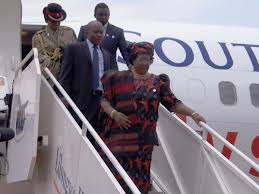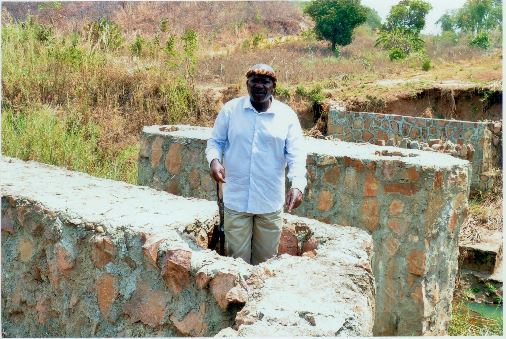Malawi Economic Justice Network (Mejn), an economic watchdog, has said President Joyce Banda’s excessive internal and external trips are rendering her 30 percent salary cut a sham.
However, Banda’s Press Secretary Steve Nhlane has defended the President, saying it was the same civil society members who asked her to cut her pay in order to lead by example and show her personal commitment to austerity measures she had instituted.
In an exclusive interview on Saturday, Mejn Executive Director Dalitso Kubalasa said it is clear that the cut is actually being repaid many times over from allowances from the numerous local and foreign trips that she is continuously making.
Kubalasa said from the onset, they established that the salary cuts were “not being good enough”.
“We at Mejn advocated for an immediate reciprocal cut on their subsistence allowances especially for Cabinet ministers, for the austerity measures’ symbolism gesture to be complete and to truly make a difference,” said Kubalasa in an email interview.
Banda announced her salary cut in September this year and later Vice President Khumbo Kachali followed suit.
President Banda earns K1.5 million (about $5 000) a month, while Kachali pockets K1 million (about $3 334).
Banda said following the rise in inflation which was at 25 percent in August (now at 30.6 percent) due to the devaluation of the kwacha, Malawians would suffer economic hardships and that her gesture was one of way of suffering with the masses.
However, Kubalasa said the president is still getting back what she cut through the numerous local trips she is undertaking, some of them glaringly lacking cost-effectiveness.
“Such (trip) as that of rumoured spending of K13 million per local trip, to distribute K2.4 million worth of foodstuffs, translates roughly into a probable net loss of K10.6 million to the taxpayers and an obvious gain to the government entourage,” Kubalasa said.
The Mejn boss also commented on President Banda’s external travel at the back of media stories that she reportedly spent K302 million when she took with her a 42-strong delegation to the UN General Assembly in New York in the US in October.
“It is also apparent that the government can still do much better than is currently the case, and that perhaps we could see immediate savings and real positive results of austerity measures in external travel,” he said.
“We hear that travel forex ceilings that are drawn by the Presidential entourage are big enough to actually cushion the shortages of the now rare commodities like the fuel and drugs to say the least, if the trips could be trimmed depending on need; or better still if the number on the entourages is trimmed to the barest minimum and not just for being politically correct, but also to be cost-effective,” Kubalasa explained.
Mejn believes that the economic crisis should not be an excuse for not providing for the citizens the critical public services in health and education, among other areas.
“All of us will most importantly be inspired, in our own way and at the micro and macro level, to fully concentrate on doing our part with the minimum resource requirements for only those priority economic activities that will set our economy on the right course towards recovery as hinted by the ERP,” he added.
Economics Association of Malawi (Ecama) agrees with Mejn, saying economic recovery measures put in place by government are a mockery.
Ecama Executive Director Nelson Mkandawire said while giving maize handouts is a good cause, the question is whether such tasks can be delegated to District Commissioners, Ministry of Agriculture or indeed Admarc officials or such structures.
“The worry comes considering that the costs of such travel could be more than the bags of maize given per visited area,” he said.
But Nhlane defended the president.
“When she and the Vice President cut their salaries, the same NGOs turned back and started saying the President has chosen symbolism over practical ways of making austerity a success,” Nhlane said.
He argued that the President does not go out solely to distribute maize.
“The main agenda for all her local trips is to hold development rallies where she interacts with the 85 percent of Malawians who live in the rural areas,” Nhlane said.
He said the President has a duty to meet and chat with the people, talk to them and hear from them what their aspirations are.
“[She] explains to them government’s policies and plans, the measures –the Economic Recovery Plan—government has put in place to heal the broken economy and improve people’s lives. This is what the President is focused on—fixing the tattered economy,” Nhlane said.
“We all have a role to play in mending the economy. But we all know that hungry people cannot effectively participate in development activities,” said Nhlane.





No comments! Be the first commenter?